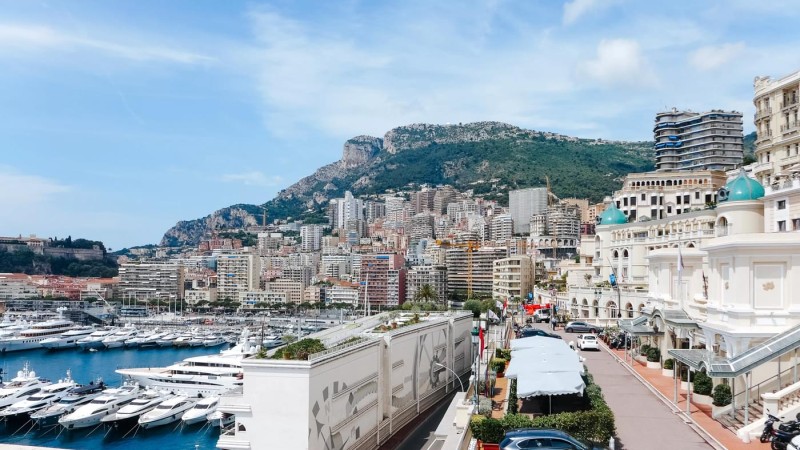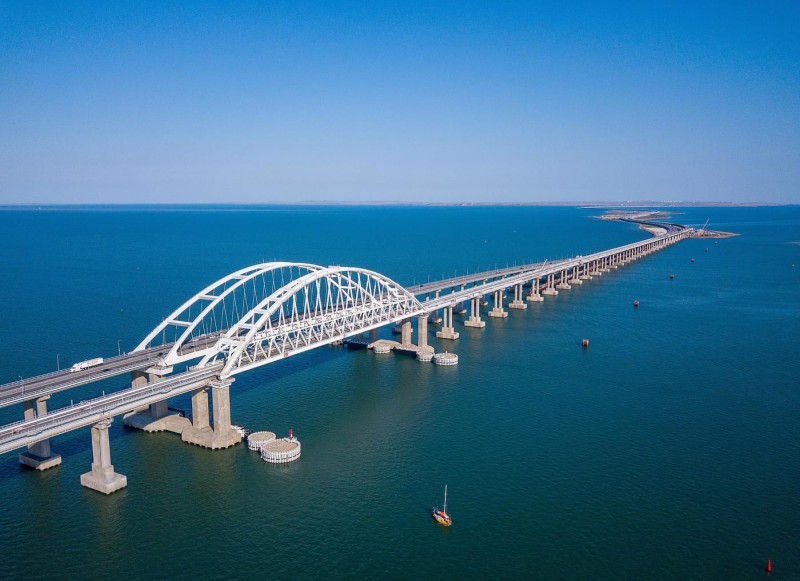Leaked emails reveal the wide range of services — from fighting the tax authorities to preparing a PR campaign to writing complaint letters — that Russian oligarch Boris Rotenberg required from a distinguished Monaco lawyer. Not everything went smoothly.
Graced with Mediterranean waters and elegant Belle Époque architecture, the French Riviera is a playground for the rich and famous. In the 19th century it hosted kings, queens, and czars; in the 20th it drew the likes of Pablo Picasso and Brigitte Bardot.
Today this sun-kissed region, which includes the French city of Nice and the independent city-state of Monaco, is no less a haven for the world’s ultra-wealthy. And these visitors often need top-shelf legal expertise.
Enter the Law Offices of Donald Manasse, a firm that touts its work in a variety of areas of interest to high-net-worth clientele, from “cross-border matrimonial disputes,” to “complex and high-profile litigation cases,” to “all aspects of taxation.”
Founding partner Donald Manasse — a self-described “well-known figure in Monaco and Nice” — has worked in the region for over three decades and is “a published authority on trusts, taxation and international real estate transactions,” according to the firm’s website.
In the mid-2010s, Manasse’s clients included a man who likely stood out, both in terms of his wealth and the headaches he brought with him: Russian billionaire Boris Rotenberg, a childhood friend of Vladimir Putin.
Despite Rotenberg’s longtime relationship with the Russian president, his support for Putin’s aggressively anti-Western regime, and his sanctioning by the United States, the oligarch has spent considerable time in Monaco. According to a new leak of emails from Maxim Viktorov, a Russian businessman who helped coordinate Rotenberg’s affairs, he even owned an extensive real estate portfolio in the Riviera.
The emails offer unprecedented insight into how the staff of Viktorov’s Russian firm, Evocorp Management Company, coordinated lawyers, bankers, and investment managers around the world on the billionaire’s behalf, especially after he was sanctioned by the United States following Russia’s 2014 annexation of Crimea.
In Monaco and southern France, the leaked correspondence also showed what kind of services a client of Rotenberg’s unusual stature required from a distinguished local lawyer: from helping him avoid tax payments, to writing complaint letters about “unsatisfactory” flights, to setting up an abortive PR campaign. Manasse, it turned out, also faced the problem of making sure he got paid.
Manasse and Rotenberg did not respond to requests for comment for this story. Viktorov said neither he nor any of his companies had ever violated any laws, “in particular, the U.S. and EU sanctions legislation.” He described reporters’ findings as “erroneous.”
‘Please Explain to Boris’
The emails showed that Manasse tried to keep a certain distance from his oligarch client. In the vast majority of the messages available in the leak, he corresponded only with Rotenberg’s various Russian lawyers and assistants.
In one rare exception, he directly addressed Boris’s wife Karina Rotenberg to complain he hasn’t received his fees — but even then, he emphasized his separation from Boris. “None of my firms’ bills have been paid for the last year,” he wrote in the May 2015 email, asking Karina to “explain” some of the details to her husband. “I am not in direct contact with him,” he reminded her.
By this time, Manasse was already handling a variety of issues for the Russian oligarch, including employment matters, land swaps with neighbors, construction projects, and potential modifications to corporate structures.
He also wrote complaints. One letter, drafted in March 2015 and addressed to a French private aviation company, was written to convey Rotenberg’s “concern and disappointment” over a trip from Moscow to Naples to St. Petersburg that was apparently marred by delays and cancellations.
“Clearly, this is an unsatisfactory situation which justifies a demand for a commercial gesture on the part of your company to satisfy an important client,” Manasse’s letter read. The draft was sent to Viktorov and several of his employees: “Here is a first draft for your comments as to accuracy and the tone BR would like us to have,” Manasse wrote. It’s not clear if the letter was sent.
One of Manasse’s key tasks in those years involved a tax dispute with the French authorities around the Rahil, a luxury yacht Rotenberg had imported into Monaco several years earlier.
In doing so, Rotenberg had taken advantage of a tax break allowed for non-EU residents. But the French customs agency was now demanding a 3.6-million-euro value-added tax payment from Rotenberg because they considered his “center of family interests” to be in Monaco, according to an official review of the case found within the leaked emails.
The French customs agency marshaled a range of evidence, including his wife’s Facebook posts, her membership in the French Equestrian Federation, and flight manifests showing vacations beginning from Monaco.
When the family flew from Moscow to Nice in August 2014, the customs agency reported, Karina told officials she was returning home from a vacation. “She even specifies that the children will be attending their first school year at the International School of Monaco,” the French customs document read.
In an email to Evocorp, the management company that was handling Rotenberg’s affairs, Manasse explained that he had already met with French customs officers about the issue. He appeared to believe there was room for negotiation.
“After the formal meeting, where we formally objected as to their findings of residence … we spoke ‘off the record’ and indicated that we might recommend a settlement to our client,” he wrote.
“I think we should continue our opposition to the finding of residence, and set out our case,” he wrote, “contesting their findings on a document-by-document basis.”
He listed possible counterarguments, including that “posting on Facebook pages are not conclusive of any intent,” and that “statements made at French customs were probably not made in French which neither BR or KR speak.”
In the end, Rotenberg’s lawyers reached an agreement with the French authorities to make a smaller tax payment of about 2.5 million euros on the yacht, plus a fine of 130,000 euros. Meanwhile, Manasse was at work on another Rotenberg assignment.
Distance from Crimea
In January 2015, the Russian government announced that Stroygazmontazh, a Russian construction giant, would be contracted to build the country’s new link to Crimea.
This was a prestigious national project: The road and rail bridge, eventually built for a reported $3.7 billion, would cement the peninsula’s annexation by connecting it to the Russian mainland.
For the same reason, much of the Western world considered the bridge a symbol of illegal occupation.
The majority owner of Stroygazmontazh was Boris’s brother Arkady Rotenberg, who had been sanctioned by the EU in July 2014. But Boris, thus far sanctioned only by the United States, had acquired a minority stake in the company a few weeks after his brother was sanctioned and held it for several months before selling it that December.
Even this brief association with the project now risked tarnishing his reputation in Europe and putting him in the crosshairs of EU sanctions officials.
And so the Russian fixer Viktorov’s team went to work.
Their efforts did not start smoothly. Writing in broken English, a Viktorov employee sent Manasse a cryptic email just four days before the bridge contract was announced, asking him to publicize the fact that Boris had sold his stake in the company the previous month.
“Please publish the following extract of the article on the issue of selling of BR 17 % of shares in Stroygazmontazh LLC in the principality of Monaco and France,” she wrote.
Manasse responded with some skepticism: “The request and its purpose … are not clear to me,” he wrote. “Given the delicate nature of the problems at hand, I would like to be sure that we know why it is thought to be useful to either AR or BR that this information be published in Monaco or France.”
The Viktorov employee replied: “The aim of this publication in mass media in France and Monaco is to spread the information that BR does not have shares of the company that is related with Crimea any more.”
Another chimed in: “We want to give an information that BR don’t have shares of sanction’s company (or companies under the sanctions). … He walked out of the project, not only sold his shares to his brother. The article should make a positive image of BR.”
Manasse still advised discretion, suggesting that the information be sent directly to the Monaco authorities, and that it be kept out of the media. “This risks to emphasize BR’s presence in Monaco,” he wrote. “Don’t we risk making something very public that otherwise was not? This is a major PR issue which could backfire, and we want to be very precise on what it is hoped to be achieved.”
The second Viktorov employee responded by stressing the matter’s urgency. “Please note that tomorrow morning is scheduled meeting of the Government of the Russian Federation, which will probably be announced the construction of a bridge across the Kerch Strait by ‘Stroygazmontaz’, and in addition at a meeting of the European Council will consider additional sanctions against several Russian companies,” she wrote.
“In this connection with press coverage of tomorrow's events, references to information that BR walked out of the company that participates in the construction of the bridge to the Crimea, will be timely and informative.”
Manasse pushed back again, citing the tax affair involving the Rahil yacht: “I am concerned that this [PR campaign] would further tie BR to Monaco in the VAT /Rahill issue.”
But on receiving another sternly worded instruction — “If you are unable to post it (submit to mass media), please inform us” — Manasse gave in. On January 30, he told Viktorov’s employees that he had contacted Monaco’s finance minister and the head of its bank association.
As for the media story, he wrote: “I will modify your article and submit it to mass media -- do you want it to sound like he did this because he does not agree with bridge over the Kerch Strait -- wouldn't that be a problem at home?”
“I ask that you don’t write that,” the second Viktorov employee replied. “It’s impossible. He walked out from the company before all resolutions were [made.]”
However, later that day, she asked him to “stop all works with the publication” and to confirm that he had done so. Manasse replied that he had, adding that he had already informed the Monaco authorities.
The reason for the abrupt reversal is unclear from the context. But in the end, Boris Rotenberg managed to avoid being sanctioned by the European Union until Russia’s full-scale invasion of Ukraine last year.
Meanwhile, Manasse was still having trouble getting paid. In May 2015, one of his employees sent Viktorov and his team a pointed message: “We refer to our email dated 30 April 2015 regarding outstanding invoices issued by our office,” she wrote. “We thank you in advance for your urgent attention to this matter.”
Just a few months later, his longstanding relationship with the Rotenbergs came to an abrupt end. The issue, it appears, involved a property sale that did not work out.
According to the emails, Manasse had introduced Boris and Karina to another client who was selling several apartments in the Mirabeau, apparently referring to a high-rise residential building in Monte Carlo that had once been a luxury hotel. For reasons not specified in the available emails, the Rotenbergs’ apparent attempt to buy them had fallen through.
“Dear Donald,” Viktorov wrote on June 16, 2015, “I inform you that we have been instructed by our principal to discontinue the cooperation with you in connection with the acts made by you which caused adverse effects for the principal's spouse.”
“I note your instructions,” Manasse replied, “and I refute and am personally insulted by any suggestion that I have acted in any way against the principal's spouse or family interests.”
In response, Viktorov placed the responsibility squarely on Karina: “Thanks for your letter. I communicate this information to Boris. However, he requested to pay your bills and stop our cooperation. I believe this is due to a profound experience of Karina. “
Manasse, in turn, found one more opportunity to remind his clients of their outstanding invoices.
“I will look forward to receiving the fees,” he wrote, adding: “I regret that Boris might even think I would act against their interests.”
“In any event,” he added, “life goes on.”






